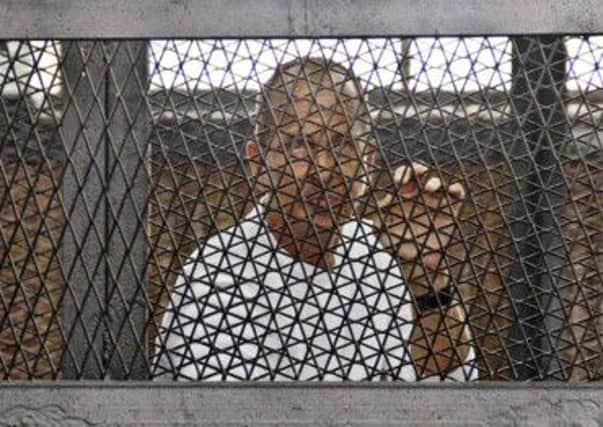Family of journalist pin hopes on deportation


An Egyptian appeals court on Thursday ordered the retrial of three Al-Jazeera English-language journalists including Peter Greste, held on terror-related charges, in a ruling that their lawyers hoped was a step toward resolving a case that brought a storm of international criticism on Egypt’s government.
Mr Greste’s brothers, Michael and Andrew, held a press conference in their hometown of Brisbane yesterday and said the family’s hopes were pinned on a presidential decree made in November that created a deportation option for bringing the 49-year-old home.
Advertisement
Hide AdAdvertisement
Hide AdMichael Greste said their case for deportation was made stronger by Thursday’s ruling by the Court of Cassation that made their brother an accused man rather than a convicted criminal.
“We’ve got to be hopeful,” Michael Greste said. “It’s a new decree and there’s very little understood about it, there’s very little regulation. There’s no precedent so obviously we’re in unchartered waters there.”
“But I’d like to think that the decree was enacted for a reason to be used, so we’re going to test it out,” he added.
Under the recently passed law, Mr el-Sissi has the power to deport the foreigners during their trial. That would allow Mr Greste to go home and his Canadian-Egyptian co-accused Mohammed Fahmy to go to Canada if he drops his Egyptian nationality.
The case of the third accused journalist, Baher Mohammed, would remain more uncertain as he holds only Egyptian citizenship.
Australian Foreign Minister Bishop said that her government had “some optimism” that Mr Greste could be transferred to Australia now that his convictions had been overturned. She hoped to speak to the Egyptian Foreign Minister Sameh Shoukry soon.
“The law in Egypt has changed since Peter Greste was first detained over 12 months ago and there’s now an opportunity for a prisoner transfer agreement,” she said.
“The law is not very clear, it is a new law, but it does provide for a couple of options for prisoners to be transferred back to their home country, in this case Australia,” she added.
Advertisement
Hide AdAdvertisement
Hide AdMr Fahmy’s family said they had already submitted a request for deportation.
The three could remain behind bars at least until the retrial begins. But their lawyers expressed cautious optimism that a quick retrial will lead to their eventual exoneration.
Thursday’s ruling, rights advocates said, exposed the highly politicised nature of their initial conviction and heavy sentences of up to ten years in prison, in a trial that they dismissed as a sham with no evidence.
Egyptian authorities offered no immediate comment on the ruling.
Mr Fahmy and Mr Greste were sentenced to seven years in prison, while Mr Mohammed got 10 years – three more because he was found with a spent bullet casing.
The defendants argued they were arrested for just doing their jobs.